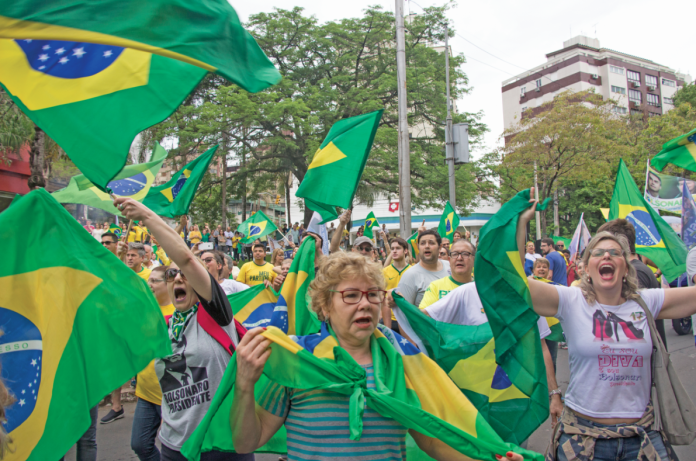Tony Saunois, Committee for a Workers’ International (CWI) secretary
Brazil has been plunged deeper into a continuing political and social crisis, only days after Luiz Inácio Lula da Silva was sworn in as Brazil’s new president, following his narrow victory over the far-right incumbent Jair Bolsonaro.
Thousands of Bolsonaro’s supporters marched in the capital Brasilia and stormed the Congress, the presidential palace and Supreme Court. For a time they took control of these centres of power, although without any clear plan or objective. After some hours they were ejected.
Significant development
This significant development is a pointer to the struggles which lie ahead in Brazil. The electoral defeat of Bolsonaro, as the CWI has warned, does not mean either the end of him, or the powerful far right-wing forces, including fascistic elements, encompassing his movement.
Lula won the election by the narrowest of margins. The right is the largest bloc in the Congress and has 21 of 27 governors. It was only in the northeast where Lula won a clear majority victory. Bolsonaro, despite leaving the country and currently residing in Florida, like his buddy Donald Trump, has never conceded defeat in the election. His supporters initiated roadblocks throughout the country following the election. Encampments of his supporters were set up outside military barracks demanding that the army intervene and carry through a military coup – a demand repeated by those who stormed government building.
These dramatic events are an anticipation of the upheavals to come under Lula’s government. The struggle against the far right in Brazil is far from over. Bolsonaro’s family is known as the ‘familícia’ because of its proximity to the militias of Rio de Janeiro. These are armed gangs with a long and increasingly close link between them, the police and the armed forces, forged largely around the sale of drugs.
Under Bolsonaro, the militias were strengthened. He also encouraged the formation of CACs – citizens with the right to possession of firearms and ammunition for ‘collecting, shooting and hunting’ – and made arms sales to them much easier. Up to one million are organised in such groups – more than in the armed forces (360,000) or the police (406,000). Most are supporters of Bolsonaro.
Lula, hated by Bolsonaro supporters, put together a coalition of the PT (Workers’ Party), left parties and sections of the ruling class and bourgeois parties. His government is divided and diverse. However, despite promising some reforms, it is wedded to remaining within capitalism. Lula has pledge to “focus on attracting foreign investment”, especially direct investment.
Arousing the opposition of the ruling class, he has argued his government would use Petrobras, the state oil company, and the national development bank as engines of economic growth. Divisions are certain to rapidly open up in the new government. The right may block these measures. The PT remains distrusted and is tainted by massive corruption scandals.
Trying to prove its reliability for capitalism, Lula, in response to this crisis, denounced the protestors as “fascist” and threatened them with prosecution. At the same time he has given the military free reign in Brasilia and called for calm. The military, with many links to Bolsonaro and the right, cannot be trusted. Rather than launch a call for mass protests and mobilisation of the working-class and poor masses, Lula and the PT simply called for calm. They do not want the masses on the streets!
Brazil faces massive social inequality and polarisation. 33 million face hunger. 125 million face varying degrees of food ‘insecurity’. During Lula’s first term in office between 2003 and 2010 a massive boom in commodity prices took place, meaning there was room to introduce some reforms and give concessions. This option is far narrower today against the background of a global economic downturn and recession threatening in 2023.
Socialist alternative
The need to build a mass socialist alternative is more urgent than ever. Unfortunately, the left party PSOL has mistakenly voted to allow its members to join the Lula government rather than oppose the far right and build an independent working-class socialist alternative. Unfortunately it will now become trapped within a capitalist government, threatening its future.
Explosive battles lie ahead, as these events have already demonstrated. The need to rebuild a mass socialist alternative to confront the far right is more urgent than ever. This is the road forward, not compromising and building alliances with the ruling class and capitalism.







